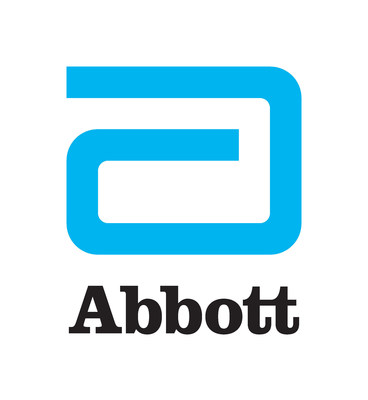Abbott Earns First-of-its-Kind Recommendation for High School STEM Interns to Receive College Credit
Abbott's internship program enables high school students to earn college credit for STEM internships, a first endorsed by the American Council on Education. Over nearly a decade, the program has supported diverse students, with 60% coming from underrepresented backgrounds. This initiative is part of Abbott's 2030 Sustainability Plan, aiming to provide STEM opportunities to 100,000 young people, including women and underrepresented groups. The program aims to inspire more students to pursue STEM careers and has already fostered a talent pipeline for Abbott's workforce.
- First high school STEM internship program recommended for college credit by ACE.
- Over 60% of student participants from diverse backgrounds.
- Aligns with Abbott's 2030 Sustainability Plan to create 100,000 STEM opportunities.
- None.
Insights
Analyzing...
ABBOTT PARK, Ill., June 22, 2021 /PRNewswire/ -- High school students who complete Abbott's award-winning summer internship program are now eligible to receive college credit for the experience in a first-of-its-kind effort that can serve as a model for other companies to support STEM education.
Abbott's program, which has provided diverse teenagers across the U.S. with opportunities in the STEM fields for nearly a decade, is the first high school STEM internship that the American Council on Education (ACE) has recommended for college credit. Students who complete the program the summer after their senior year in high school are eligible to apply for up to two hours of credit from their educational institutions.
This important step is a continuation of Abbott's commitment to providing experience in the science, technology, engineering and math, or STEM, fields that leads to successful careers for young women and students from underrepresented groups. More than
Abbott's efforts include an updated edition of our "Shaping the Future of STEM" blueprint, which now has a chapter on how other companies can pursue college credit for their programs in addition to starting their own high school STEM internships. Abbott's high school interns complete meaningful, quality STEM-related work during their summers, including in areas like research and development, manufacturing, quality and regulatory, and operations.
"This innovative effort supports students as they earn their degrees and pursue STEM careers," said Mary Moreland, executive vice president, Human Resources, Abbott. "It will truly be a positive change in students' lives. Our goal is to help more students – particularly women and people from underrepresented groups – become STEM professionals."
The recommendation from the American Council on Education, the major coordinating body for U.S. higher education institutions, validates the quality of Abbott's program and enables attainment of educational and career goals for participants.
"ACE's Learning Evaluations program seeks to empower learners and improve economic mobility by validating learning experiences in post-traditional settings. Abbott's program can serve as a model, showcasing a commitment to quality training and preparation of learners for real-world applications. This supports our philosophy that what a person learns is more important than when and where the learning occurs," said Michele Spires, executive director for Learning Evaluations at ACE.
Real Experience, Real Lives
Abbott recruits interns starting as sophomores from specific high schools located near its facilities that meet certain criteria, including student populations with racial, ethnic and/or income diversity. One of those partners is Roseville Area High School in Roseville, Minn., where Principal Christina Hester has seen the benefits of Abbott's STEM internship firsthand. The opportunity for students to earn credit while obtaining career experience only makes them higher-quality candidates when they apply to colleges, she said.
"You can't buy this kind of experience anywhere," Hester said. "Without a doubt this program and the college credit will make a difference for our students, and the skills they gain will make them marketable and valuable as future employees."
Graduating senior Anushka Agashe, 18, who will be attending the University of Illinois Urbana-Champaign this fall to major in bioengineering, said she will gain a head start toward earning her degree by completing her internship this August, her third summer with Abbott.
"Abbott's high school internship is giving me a double advantage," Agashe said. "First, the possibility of receiving college credit relieves financial burden. It's tuition I won't have to pay. That's on top of the real-life, hands-on experience I'm getting while working with professional engineers. My career path is much clearer now."
Shaping the Future of STEM
The U.S. alone will need another nearly 800,000 STEM workers by 2029. As part of Abbott's 2030 Sustainability Plan, the company intends to build on its efforts to decrease the STEM skills gap by creating opportunities for more than 100,000 young people, including
The high school internship has become a proven STEM talent pipeline for Abbott, guiding students through high school to Abbott's college internship program to full-time Abbott employee. Abbott has started hiring its first former high school interns as full-time engineers:
"If we want to live in a world where everyone benefits from the next great breakthroughs, we have to solve the STEM gender gap," said Sabina Ewing, vice president, Business and Technology Services, and chief information officer, Abbott. "Offering high school girls STEM internships helps them see a world they couldn't before: BIPOC, women engineers, scientists and IT professionals solving tangible problems — like creating an app for COVID testing. When they work alongside people who look like them at such a critical age, they are inspired to pursue STEM in college and beyond."
This success inspired Abbott to ask other companies to join in offering STEM experience to younger generations. To help, in 2019 Abbott released a blueprint containing detailed, scalable plans to recreate its high school internship program with the hope that other companies will use it to create similar programs and reach more students.
Download the second edition of our "Shaping the Future of STEM" blueprint at www.stem.abbott.
About the American Council on Education:
ACE is a membership organization that mobilizes the higher education community to shape effective public policy and foster innovative, high-quality practice. As the major coordinating body for the nation's colleges and universities, our strength lies in our diverse membership of more than 1,700 colleges and universities, related associations, and other organizations in America and abroad. ACE is the only major higher education association to represent all types of U.S. accredited, degree-granting institutions: two-year and four-year, public and private. For more information, please visit www.acenet.edu or follow ACE on Twitter @ACEducation.
About Abbott:
Abbott (NYSE: ABT) is a global healthcare leader that helps people live more fully at all stages of life. Our portfolio of life-changing technologies spans the spectrum of healthcare, with leading businesses and products in diagnostics, medical devices, nutritionals and branded generic medicines. Our 109,000 colleagues serve people in more than 160 countries.
Connect with us at www.abbott.com, on LinkedIn at www.linkedin.com/company/abbott-/, on Facebook at www.facebook.com/Abbott and on Twitter @AbbottNews.
![]() View original content to download multimedia:http://www.prnewswire.com/news-releases/abbott-earns-first-of-its-kind-recommendation-for-high-school-stem-interns-to-receive-college-credit-301316735.html
View original content to download multimedia:http://www.prnewswire.com/news-releases/abbott-earns-first-of-its-kind-recommendation-for-high-school-stem-interns-to-receive-college-credit-301316735.html
SOURCE Abbott









